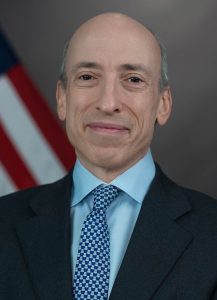Truckers weighing proposed climate rules from SEC and how it could affect them

Small and large carriers alike are wondering how the Securities and Exchange Commission’s (SEC) proposed climate disclosure rules could affect their businesses.
Small and large carriers alike are wondering how the Securities and Exchange Commission’s (SEC) proposed climate disclosure rules could affect their businesses. The regulations would require publicly traded companies to make climate risks and impacts available to investors and the public.
The rules, proposed in March, would require SEC registrants to disclose information about scope 1 (direct), scope 2 (indirect) and scope 3 (supply chain) greenhouse gas emissions (GHG).
They would also require companies to share information about:
- How they are monitoring and managing climate-related
- How climate-related risks have or may affect their strategy and outlook in the short to long term.
- How transition activities and climate-related events such as severe weather could impact their financial statements.
“They’re on the track to passing these disclosure rules, and it’s got a broad support in the investment community,” Oliver Browne, vice president of policy at mobile fuel delivery company Booster said. “There is a broad push by investors to have this information in a comparable standardized way from companies.”
Similar climate disclosure rules are already in place or soon will be in the EU, U.K., Japan, New Zealand and Singapore, said Karthik Balakrishnan, co-founder and president at environmental, social and governance transformation platform Actual.
Enjoying our insights?
Subscribe to our newsletter to keep up with the latest industry trends and developments.
Stay Informed“If adopted, it would provide investors with consistent, comparable and decision-useful information for making their investment decisions, and it would provide consistent and clear reporting obligations for issuers,” SEC Chairman Gary Gensler
“If adopted, it would provide investors with consistent, comparable and decision-useful information for making their investment decisions, and it would provide consistent and clear reporting obligations for issuers,” SEC Chairman Gary Gensler said in a March release.
The inclusion of scope 3 emissions likely would have the largest impact on smaller freight companies. Scope 3 emissions would be required if they are “material” or if the company has a target to reduce them. The rules would provide a safe harbor for liability from scope 3 emissions disclosure and an exemption for smaller reporting companies.
While smaller companies are exempt from reporting scope 3 emissions under the proposed regulations, it could create a “tremendous amount of pressure” on smaller fleet operators because large retailers will want that supply chain emissions data, Browne said. He said the SEC needs to make sure that small companies and owner-operators have their voices “really heard and factored in.”
The SEC accepted public comments on the proposed rules from March 21 to June 17, according to a release. Several companies and organizations submitted comments, including suggestions for clarifications or changes.
About 90% of carriers in the U.S. operate 10 or fewer trucks, and nearly 50% of trucking businesses are single-truck carriers, the Owner-Operator Independent Drivers Association (OOIDA) said in its comments on the proposed rules.
The freight industry generally operates on a low margin, so having to hire extra employees or spend extra time on the reporting could be a burden for small operators, said Frank Mycroft, chief executive of Booster.
“Small-trucking businesses already lack the back office resources that would facilitate collecting and calculating this data, especially when compared with publicly traded carriers that employ dedicated administrative departments,” OOIDA said. “Far too often, small carriers are victims of regulations promoted by these large fleets as a method of squeezing competitors out of the industry by increasing their operating costs.”
The freight sector is not suited for scope 3 reporting, and small businesses don’t have the resources to do so, the American Trucking Associations (ATA) said. But ATA supports “the underlying goals of the SEC rule in seeking better transparency and disclosure of registrant financial risks.”
Small carriers often work with many companies, including third-party logistics firms, manufacturers and retailers. Having to report data for each entity a carrier works with could create “a world of administrative complexity they haven’t seen before,” Mycroft said.
OOIDA said: “While the rule provides flexibility for registrants subject to SEC reporting requirements, it should clarify that small business entities receiving requests from publicly traded companies for information to comply with this regulation should have flexibility as well.”
Carriers that measure and share their emissions with retailers may gain a competitive advantage and help those companies view a better picture of their impact, Balakrishnan said. That can lead to collaboration to lower supply chain emissions.
Providing investors with comparable, accurate climate data

The goal of the climate disclosure rules is to give investors a better idea of how companies are impacting the climate and how climate change poses risks to companies.
The goal of the climate disclosure rules is to give investors a better idea of how companies are impacting the climate and how climate change poses risks to companies.
“We believe that with this proposed rule, the SEC is responding to investors’ needs for clear, consistent and comparable reporting from companies to produce useful investment insights and ensure financial markets can properly price and act on the physical and transitional risks of climate change,” said Climate Action 100 plus, an investor-led nonprofit dedicated to climate change initiatives.
Balakrishnan said all of the existing climate-related financial disclosures are based on Task Force on Climate-related Financial Disclosures (TCFD) recommendations. The SEC’s decision to move toward standardization using TCFD recommendations could make climate data more comparable between companies.
“The good news is that there are decades of standards and examples to draw from, and many transportation providers already evaluate and report on their climate risks and emissions,” said Nate Springer, senior director of market development at environmental consulting company Gladstein, Neandross and Associates. “The rule should help standardize these disclosures. The challenge will be for carriers to apply the same rigor to these analyses and disclosures as they do for other financially material risks.”
Balakrishnan said the standardization should “make it easier for companies to report across many countries without creating undue compliance burdens and to allow for greater comparability for investors and reduce knowledge asymmetries.”
He said these rules do not mean the SEC is making a judgment about the climate disclosure results. The regulations are not mandates to reduce emissions.
“Investors independently determine how much, if any, weight they want to put on a company’s climate disclosures,” Balakrishnan said. “Companies will remain free to invest and operate as they see fit, guided by better-informed investor demands.”
Gensler said the SEC aims to allow investors to decide which risks to take as long as public companies provide “full and fair disclosure and are truthful in those disclosures.”
“Today, investors representing literally tens of trillions of dollars support climate-related disclosures because they recognize that climate risks can pose significant financial risks to companies, and investors need reliable information about climate risks to make informed investment decisions,” Gensler added.
Greenwashing and competitive impacts
Most companies that commented agreed with the SEC’s efforts and recognized the potential positive impacts of the climate disclosure rules. Booster is “aligned with the spirit of what the SEC is trying to achieve,” Browne said.
Mycroft said if the rules work as designed, they will set a bar for emissions and climate reporting that will allow people to talk about the risks and impacts more transparently.
“When I think about what these [regulations] are supposed to do, what they probably will do is reduce greenwashing.”
Greenwashing happens when companies market they are environmentally friendly without supporting the claims with climate action. If the rules are implemented, U.S.-based publicly traded companies would be held to standards that private companies would not. Browne said private companies could continue to greenwash and may seem more sustainable to consumers even though they are not adhering to standards.
The climate disclosure rules could also impact the competitiveness of U.S.-based companies with those based in other countries where there are not similar climate reporting requirements.
Limits of measuring scope 1, 2, 3 emissions

The climate disclosure rules the SEC proposes are limited by what they cannot measure.
Experts agree it is important to assess what is currently measurable because companies have to begin somewhere. “I think we need to start with what is measurable, just be very mindful that there’s a whole lot of stuff we can’t measure at the same time,” Browne said.
Emissions data is useful, but “I need to know the details and the exceptions that drive it as much as I need to know the number,” Mycroft said.
The climate disclosure rules the SEC proposes are limited by what they cannot measure. A company’s basic operations may help other companies or the industry as a whole reduce emissions. Those avoided emissions are sometimes referred to as scope 4. But investors wouldn’t have that data when comparing companies’ scope 1, 2 and 3 emissions.
Browne said there will be “hidden shifts in the economy,” where a sector’s emissions are structurally lowered. But that wouldn’t be captured in the SEC reporting.
Entities split on scope 3 inclusion
The National Association of Truck Stop Operators said the SEC’s proposal for including scope 3 emissions is “not ready for prime time and should be abandoned in the final rule.”
“Granularized and consistent scope 3 data comparisons between freight hauling companies is just not practical,” ATA said.
Because scope 3 emissions are “notoriously difficult to measure,” Walmart said the SEC should “dispense with the requirement to disclose scope 3 emissions unless and until reporting standards mature to a level of proven reliability.”
Some think there should be no safe harbor and stricter requirements to include all scope 3 emissions, whether or not a company considers them “material.”
Schneider Electric said, “While the disclosure of scope 1 and scope 2 emissions is vital for investors’ understanding of climate-related risks on business operations and revenue, disclosure of scope 3 emissions is also essential, as most emissions lie in this area for nearly all companies.”
Environmental nonprofit Pacific Environment said investors would have “no way of knowing the extent of a company’s scope 3 emissions or what steps the company is taking to reduce them” if companies are not required to disclose them.
“Scope 3 reporting is critical for effective risk analysis and investment decision making,” said corporate social responsibility nonprofit As You Sow. “The SEC should not allow companies to decide that their scope 3 emissions are non-material and thus avoid having to assess and disclose these important emissions. The incentives to ignore material climate risk are too great, and a level playing field for companies is too important.”





















